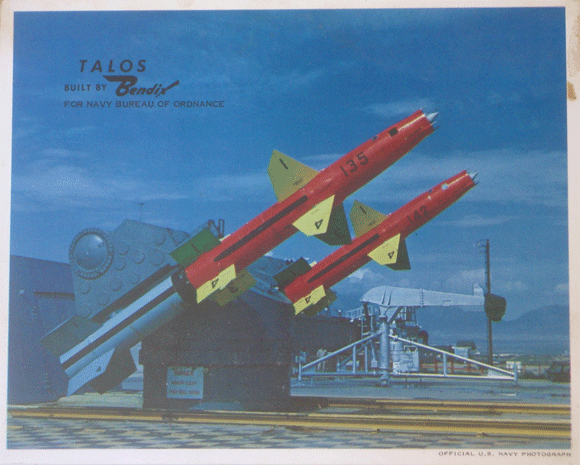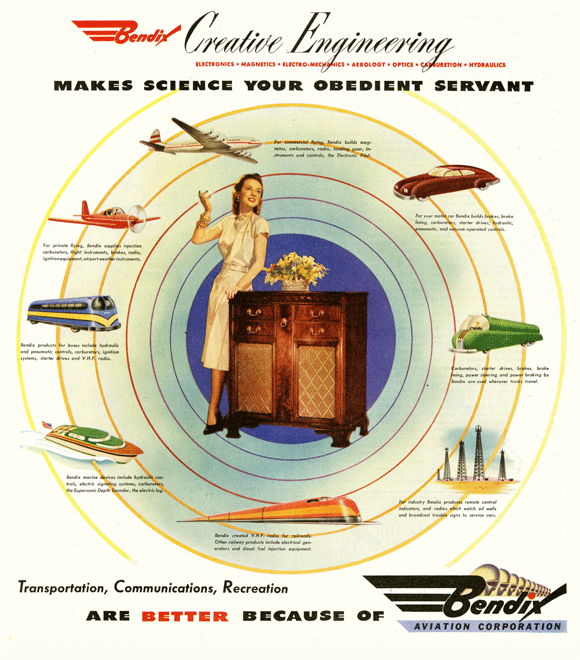science as servant
The slogan ‘Creative engineering makes science your obedient servant’ not only perfectly sums up the immediate post-war era stance of absolute belief in technological feasibility, but also unmistakingly voices where science’s proper place in society should be. I maintain that the understanding of said era is quintessential for understanding our contemporary world:
In present day society, the term ‘science’ has great potency. Not only is ‘science’ more or less equivalent to ‘valid knowledge’, but it also merges with ‘technology’, that is, the useful application of knowledge […]. (Mulkay 1993: 639—bold emphasis mine)
Knowledge has no doubt always played a significant role in human life. Human action has to a greater or lesser extent always been steered by knowledge. Power, for example, has never exclusively been based on brute physical force, but frequently also on a knowledge advantage. At present, however, knowledge is assuming a greater significance than ever before. Advanced industrial societies may even be regarded as ‘knowledge societies’. A thoroughgoing scientization of all spheres of human life and action, the transformation of both traditional structures of domination and of the economy, as well as the groing impact and influence of experts are all indications of the rapidly increasing role of knowledge in the organization of modern societies. (Meja & Stehr 1993: 639—bold emphasis mine)
‘Power, for example, has never exclusively been based on brute physical force, but frequently also on a knowledge advantage.’ … The ‘also’ is crucial here, because knowledge and brute force oftentimes are in a mutual, dialectical relationship. All the utopian visions of the good life created by science and technology as expressed by the advertisement above notwithstanding, we shouldn’t forget the ultimate goals science and technology so often are put to:




Nice one this … Bendix absolutely could be THE toy factory of my childhood :P